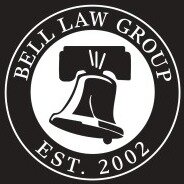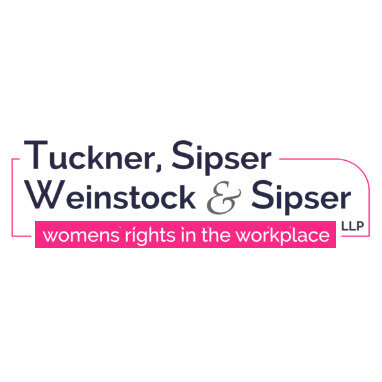Best Sexual Harassment Lawyers in New York
Share your needs with us, get contacted by law firms.
Free. Takes 2 min.
Or refine your search by selecting a city:
List of the best lawyers in New York, United States
About Sexual Harassment Law in New York, United States
Sexual harassment is a form of unlawful discrimination that violates both federal and New York State laws. In New York, sexual harassment includes unwelcome sexual advances, requests for sexual favors, and other verbal or physical conduct of a sexual nature that can affect an individual's employment, work environment, or educational experience. The law protects employees, job applicants, interns, students, and others from unwelcome behaviors that create a hostile or intimidating atmosphere. New York has some of the most comprehensive protections in the United States, offering broader coverage than federal law and seeking to ensure every person can work or learn free from harassment.
Why You May Need a Lawyer
You may need a lawyer if you are experiencing or have experienced sexual harassment and are unsure about your rights or the appropriate steps to take. Common situations requiring legal help include:
- You are unsure if certain behaviors at work or school qualify as sexual harassment
- You reported harassment and faced retaliation, such as being demoted or fired
- Your employer or school failed to take adequate action after you reported harassment
- You need guidance on filing a complaint with a governmental agency
- You want to negotiate a settlement or file a lawsuit against an employer, coworker, or institution
- You are worried about confidentiality or fear further negative consequences
- You are a witness and need legal protection or advice about your involvement
An attorney with experience in sexual harassment cases can provide guidance tailored to your situation, protect your rights, and help you seek the justice and compensation you deserve.
Local Laws Overview
New York State and New York City laws offer robust protections against sexual harassment. Some key aspects include:
- Coverage: The law protects anyone in the workplace, including employees (full-time, part-time, temporary), interns, contractors, and even non-employees present in the workplace.
- Standard: New York has a lower threshold than federal law for what constitutes sexual harassment. Harassment does not need to be "severe or pervasive" - any unwanted or offensive behavior that rises above petty slights or trivial inconveniences may be actionable.
- Employer Obligations: Employers are required to have anti-harassment policies, conduct yearly sexual harassment prevention training, and provide clear complaint procedures.
- Statute of Limitations: In New York, complaints can generally be filed within three years of the harassment for state claims. For city law claims, the deadline may be up to three years as well.
- Retaliation Protections: Employees are protected from retaliation if they report harassment or participate in investigations.
- Multiple Avenues for Complaints: Victims can file complaints with their employer, the New York State Division of Human Rights, the Equal Employment Opportunity Commission (EEOC), or file a lawsuit in court.
Both federal and state laws may apply, with New York law often providing more expansive protections than federal law.
Frequently Asked Questions
What is considered sexual harassment under New York law?
Sexual harassment includes unwelcome sexual advances, offensive remarks about a person’s gender, unwanted touching, display of sexual images, requests for sexual favors, or any comments or behaviors that create a hostile, intimidating, or offensive environment based on sex or gender.
Who is protected from sexual harassment in New York?
Almost everyone is protected, including employees, job applicants, interns, independent contractors, and non-employees who interact in a workplace or educational setting.
Does sexual harassment have to be sexual in nature?
Not necessarily. Harassment based on gender or gender identity, even if not overtly sexual, can qualify as sexual harassment under New York law.
How do I report sexual harassment at work?
You can report the harassment to your supervisor, human resources department, or the person designated in your employer’s anti-harassment policy. You may also file a complaint with state, city, or federal agencies.
What should I do if my employer ignores my complaint?
You may file a charge with the New York State Division of Human Rights, the New York City Commission on Human Rights, or the EEOC. Consulting a lawyer can help you understand the best steps for your case.
How long do I have to file a complaint?
Generally, you must file within three years from the date of the last incident for state law claims. Deadlines may be different for federal law claims or lawsuits, so it is best to consult a legal professional promptly.
Can I be fired or demoted for reporting sexual harassment?
No. Retaliation against individuals for reporting harassment or participating in an investigation is illegal under both federal and New York State law.
What kind of compensation can I receive?
Victims of sexual harassment may be entitled to back pay, front pay, emotional distress damages, reinstatement, legal fees, and sometimes punitive damages depending on the circumstances.
Is training about sexual harassment required for employers?
Yes. Most employers in New York State are required to provide yearly sexual harassment prevention training to all employees.
Do I need a lawyer to file a complaint?
While you are not required to have an attorney, legal advice can be highly beneficial in understanding your rights, building a case, negotiating a settlement, or filing a lawsuit.
Additional Resources
If you are seeking information or support regarding sexual harassment in New York, these resources may be helpful:
- New York State Division of Human Rights - Handles complaints and provides information about your rights.
- New York City Commission on Human Rights - Offers protection under local laws, allows you to file a complaint, and provides supportive services.
- Equal Employment Opportunity Commission (EEOC) - Federal agency accepting and investigating workplace harassment claims.
- New York State Department of Labor - Guidance regarding workplace rights and employer obligations.
- Rape, Abuse and Incest National Network (RAINN) - Offers confidential support, legal referrals, and victim services.
- Local legal aid organizations, bar associations, and attorney referral services - Provide legal advice and representation, often at low or no cost.
Next Steps
If you believe you have experienced sexual harassment in New York, consider the following steps:
- Document the harassment as clearly as possible, including dates, times, witnesses, and exact details.
- Report the incident using your employer’s official channels or your school’s procedures.
- If you do not receive a satisfactory response or experience retaliation, reach out to the New York State Division of Human Rights or other relevant agencies to file a formal complaint.
- Consult a lawyer with experience in sexual harassment cases to evaluate your options and protect your legal rights.
- Do not delay. Documenting your experiences and acting promptly can help secure your rights and potential remedies.
Seeking legal guidance at an early stage can help ensure your case is handled properly and maximize the likelihood of a positive outcome.
Lawzana helps you find the best lawyers and law firms in New York through a curated and pre-screened list of qualified legal professionals. Our platform offers rankings and detailed profiles of attorneys and law firms, allowing you to compare based on practice areas, including Sexual Harassment, experience, and client feedback.
Each profile includes a description of the firm's areas of practice, client reviews, team members and partners, year of establishment, spoken languages, office locations, contact information, social media presence, and any published articles or resources. Most firms on our platform speak English and are experienced in both local and international legal matters.
Get a quote from top-rated law firms in New York, United States — quickly, securely, and without unnecessary hassle.
Disclaimer:
The information provided on this page is for general informational purposes only and does not constitute legal advice. While we strive to ensure the accuracy and relevance of the content, legal information may change over time, and interpretations of the law can vary. You should always consult with a qualified legal professional for advice specific to your situation.
We disclaim all liability for actions taken or not taken based on the content of this page. If you believe any information is incorrect or outdated, please contact us, and we will review and update it where appropriate.
Browse sexual harassment law firms by city in New York
Refine your search by selecting a city.















